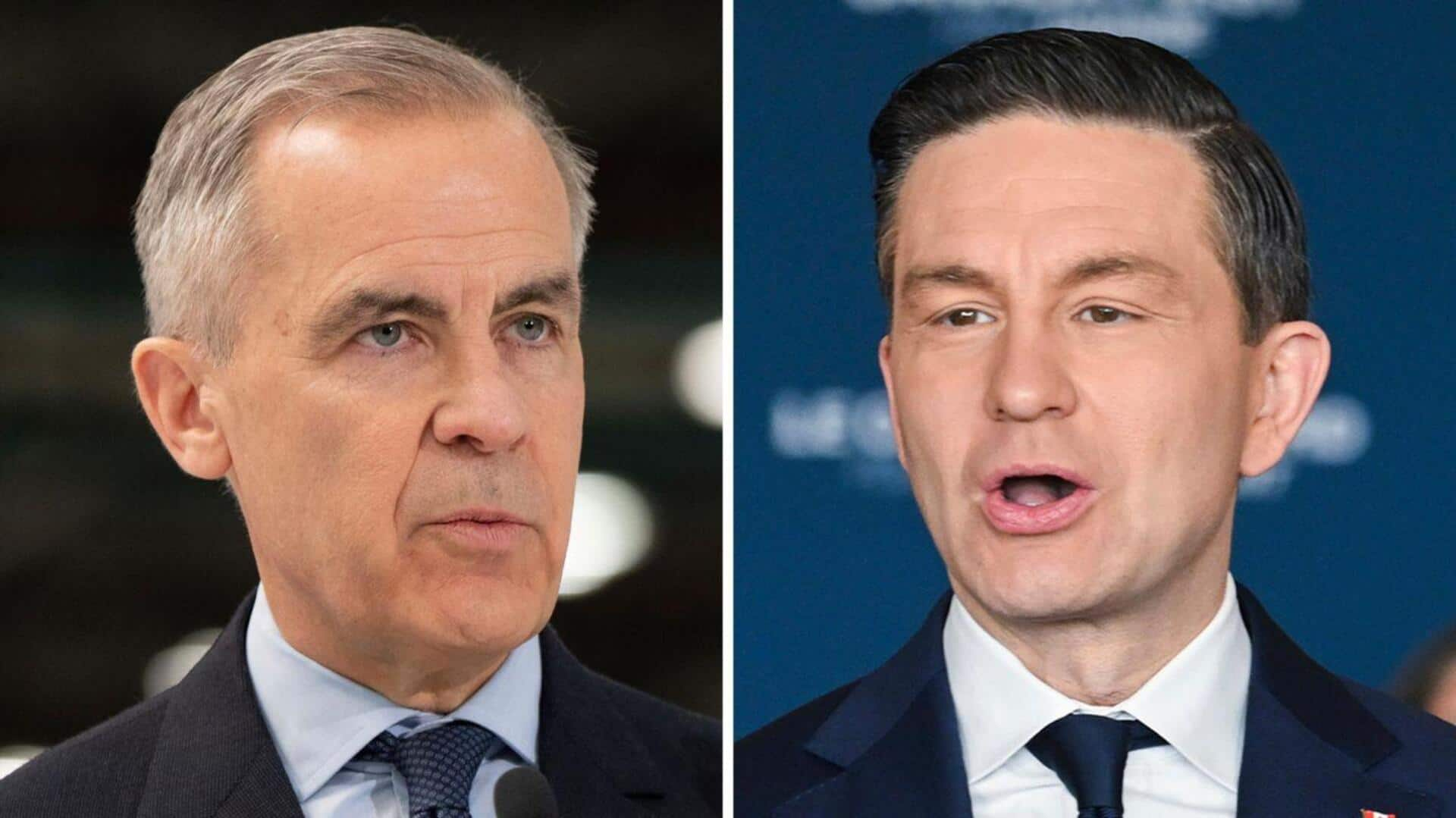
Canada votes on April 28; know who favourites are
What's the story
Canadians will vote on April 28, 2025, in a federal election to decide the next government.
It is a contest between the ruling Liberal Party of PM Mark Carney and the opposition Conservative Party led by Pierre Poilievre.
This election comes amid rising tensions with the United States of America, economic uncertainties, and an intense race between two contrasting leaders.
Voting system
Canada's voting process: A unique approach
Canada has a uniquely simple voting process: it uses paper ballots and not machines or referendums.
The country follows a "first past the post" system: voters select their local Member of Parliament (MP) to represent one of 343 ridings in the House of Commons.
The candidate with the most votes in each riding wins, even if they don't secure a majority.
Voting eligibility
Who can vote and when?
All Canadian citizens, including prisoners and those abroad, can vote.
The chief electoral officer is the sole eligible citizen barred from voting during their 10-year term.
The governor general, representing the King as Canada's head of state, traditionally doesn't vote to remain neutral.
Advance voting started on April 18, with most Canadians receiving a card by mail stating their polling place and voting times.
Election contenders
Who are the candidates?
Mark Carney is the newly appointed Liberal Party chief and the sitting PM, contesting his maiden election. He is the former Governor of the Bank of Canada and the Bank of England.
Pierre Poilievre is a Conservative Party veteran, known for his populist messaging.
Other major parties are Jagmeet Singh's New Democratic Party (NDP), Yves-Francois Blanchet's Bloc Québécois, and Green Party candidates across Canada.
Election issues
What are the major issues in the election?
The election has been set against a backdrop of economic anxiety and geopolitical tension, amid a growing trade rift with the US.
Former US President Donald Trump recently announced steep tariffs on Canadian steel, aluminum, automobiles, and pharmaceuticals.
Carney has warned Canadians of "tough days ahead," while Poilievre has leaned into nationalist rhetoric.